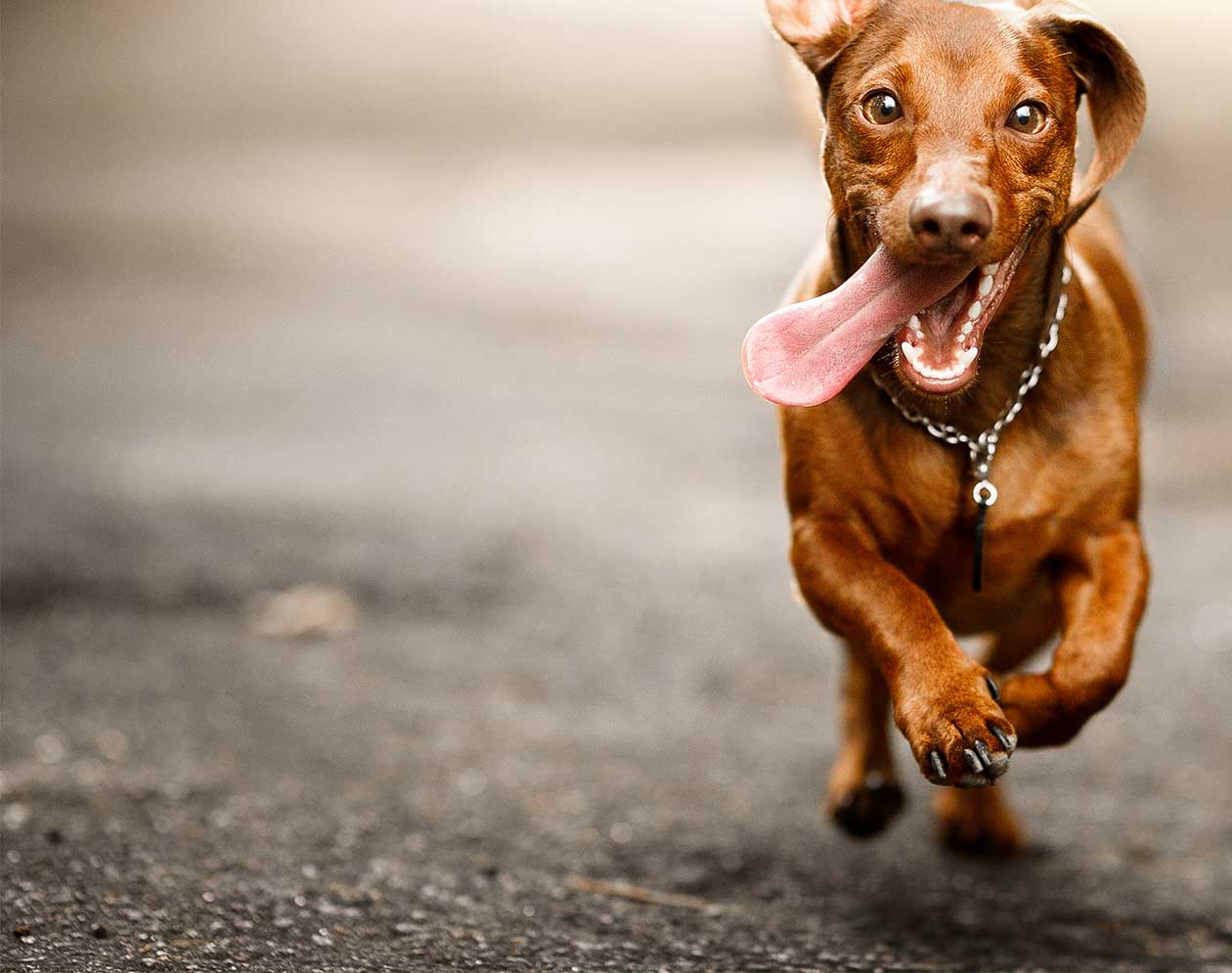
Dental advice for your dog
Dental disease is one of the most common problems among pets, according to the RSPCA – which is why dogs need oral care as much as we do. See our handy guide on how to care for your pet's teeth.
Published:30 November 2023
Dental disease is one of the most common problems among pets, according to the RSPCA – which is why dogs need oral care as much as we do.
Oral hygiene for hounds
An adult dog will develop 42 permanent teeth and, without dental care, can suffer from all kinds of tooth and gum problems. As dogs can’t brush their own teeth – and count chewing rocks, sticks and other hard objects among their hobbies – it’s no wonder they get tooth trouble. A routine check of a dog’s teeth and gums performed by its owner is the best way to prevent serious problems. Experts suggest that owners take a regular look inside their pet’s mouth to try to spot anything unusual. While you’re there, see if anything smells out of sorts too – ‘dog breath’ is generally down to poor dental hygiene. If you do see signs of broken teeth, decay or inflammation, make an appointment with your vet for a dental check-up.
Tooth decay
Loose teeth, sore or infected gums and rotting tooth sockets can all occur in dogs with poor dental care. Bad breath can be due to bacteria from decaying food, which can cause infection. Inflamed, red or bleeding gums (or gingivitis) can be brought on by bacteria from food left around the teeth, while plaque can build up and harden over teeth. The good news is a look inside your dog’s mouth is all it takes to spot signs of decay. Owners are also advised to check around the outside of their pet’s face – look for a swollen jaw or a lump on the lower or upper jaw, which could be an abscess. Other symptoms that your dog has tooth trouble include gulping down food, excessive drooling or problems chewing – all tell-tale signs of wobbly or missing teeth – while sneezing and nasal discharge could indicate gum disease or abscesses on their upper jaw. Rotting or infected teeth and gums will be painful for your pet and prevent them breaking up their food to eat, so it’s important to spot the symptoms and see your vet.
Prevention
It is possible to prevent your dog’s dental decline. Vets suggest giving dental chews or rawhide chews as treats, or letting your pup or pooch play with chew toys, all of which will get them exercising their teeth. Another way to avoid decay is to brush your dog’s teeth daily; special toothbrushes or finger-glove brushes can be bought in most veterinary clinics or pet shops, along with dog-friendly toothpastes (you can even find meat-flavoured paste). Just don’t use your own minty-fresh brand – it’s not for dogs and can harm their digestion. Frequently brushing your pet’s teeth will help keep teeth and gums in tip-top condition, keep tartar at bay and cavities under control – you may even get a whiff of decent doggy breath, too.
Treatment
Few of us enjoy a trip to the dentist and your dog will be no exception – but doing so could just save his gnashers. Taking your four-legged friend to the vet for a thorough tooth clean is the only way to cure dental disease. Leaving it untreated can lead to tooth loss and damaging bacteria can even travel through the body to affect vital organs. Typically, vets will place your pooch under anaesthetic and the treatment will include taking an X-ray of their teeth to spot any deep-rooted issues that you can’t see – such as abscesses or deteriorating bones. A teeth scrape will rid them of any plaque, while a gentle probe of the gums will identify any infection. In short, it’s much like a clean at your own dentist! A vet will also be able to spot any rotten or loose teeth that should be removed. Once cleaned from root to tip, your dog will be woken from its anaesthetic and usually able to head home the same day – no doubt smiling from ear to ear.
Looking for some more information?
Expert advice available 24/7
vetfone™ is a 24/7 unlimited, free telephone or video call service that provides expert advice from nurses qualified with the Royal College of Veterinary Surgeons. If your pet has a medical emergency, or you need reassurance on grooming, feeding or general advice, vetfone™ is there to help. Vetfone™ is provided at no additional cost with all Tesco Bank Pet Insurance policies.
You can call the vetfone™ freephone* number on 0800 197 4949. *Standard network charges apply. Mobiles may be higher. Please check with your operator.

Important information
Tesco Bank Pet Insurance is arranged, administered and underwritten by Royal & Sun Alliance Insurance Ltd.
Vetfone™ is provided by Vetsdirect Ltd.
